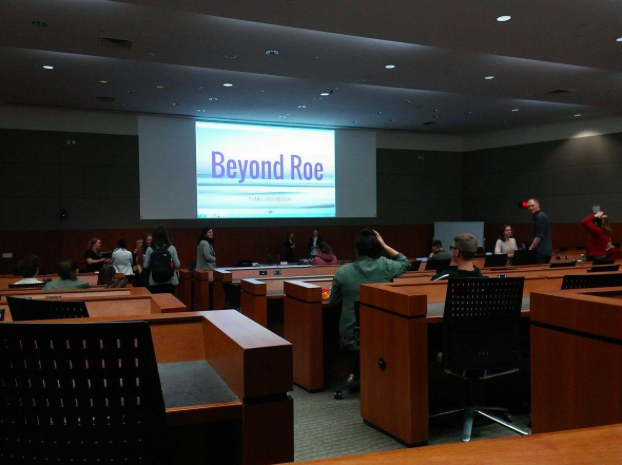With the recent appointment of Neil Gorsuch to the United States Supreme Court, medical students and community members gathered to discuss the potential impacts on abortion rights in the context of Roe v. Wade.
Medical Students for Choice and NARAL Pro-Choice Wisconsin hosted the Thursday panel as leaders in the field of reproductive rights in Wisconsin led a discussion on abortion services at the University of Wisconsin Health Services Learning Center.
Jenny Higgins, a gender and women’s studies professor at the University of Wisconsin, said abortion is more common than many think.
“One in three women in the U.S. between the ages of 15 and 44 will have an abortion at some point in their life,” Higgins said.
When in comes to improving abortion rights, Higgins said, overturning the Hyde Amendment, which prohibits the use of federal funds for any abortion-related services, would be a step in the right direction.
The panel also discussed the need for medical students and residents to receive training in abortion services. Often, some panelists said, they are not granted that opportunity for political reasons.
“There is no medical reason or scientific evidence to indicate mid-level providers shouldn’t be able to provide [abortion services],” Higgins said.
Bill looks to limit abortion services for nearly 250,000 public sector employees
Jensena Carlson, a UW alumna and family physician at the UW Health’s Belleville clinic, said it is important to allow training in abortion services to everyone who seeks it.
But those seeking abortions will still encounter difficulties, said Nicole Safar, the director of government relations & legal advocacy at Planned Parenthood of Wisconsin.
“I think something people don’t know is how difficult it is to get an abortion in the state of Wisconsin,” Safar said.
Walker says he would sign bill banning abortions after 20 weeks
In Wisconsin, there is a mandatory delay, meaning a woman is required to have two appointments and receive state scripted consent before being able to get an abortion, Safar said.
Moving forward, the panel said measures can still be taken to help bring awareness to abortion rights.
Talking and listening about why access to abortion is important, Safar said. Getting involved at the local level and becoming involved in organizations like Planned Parenthood are also some first steps people can take to bring awareness to these issues, Safar said.
“The lack of cultural discourse about abortion is what leads to stigma and misconceptions,” Higgins said.














